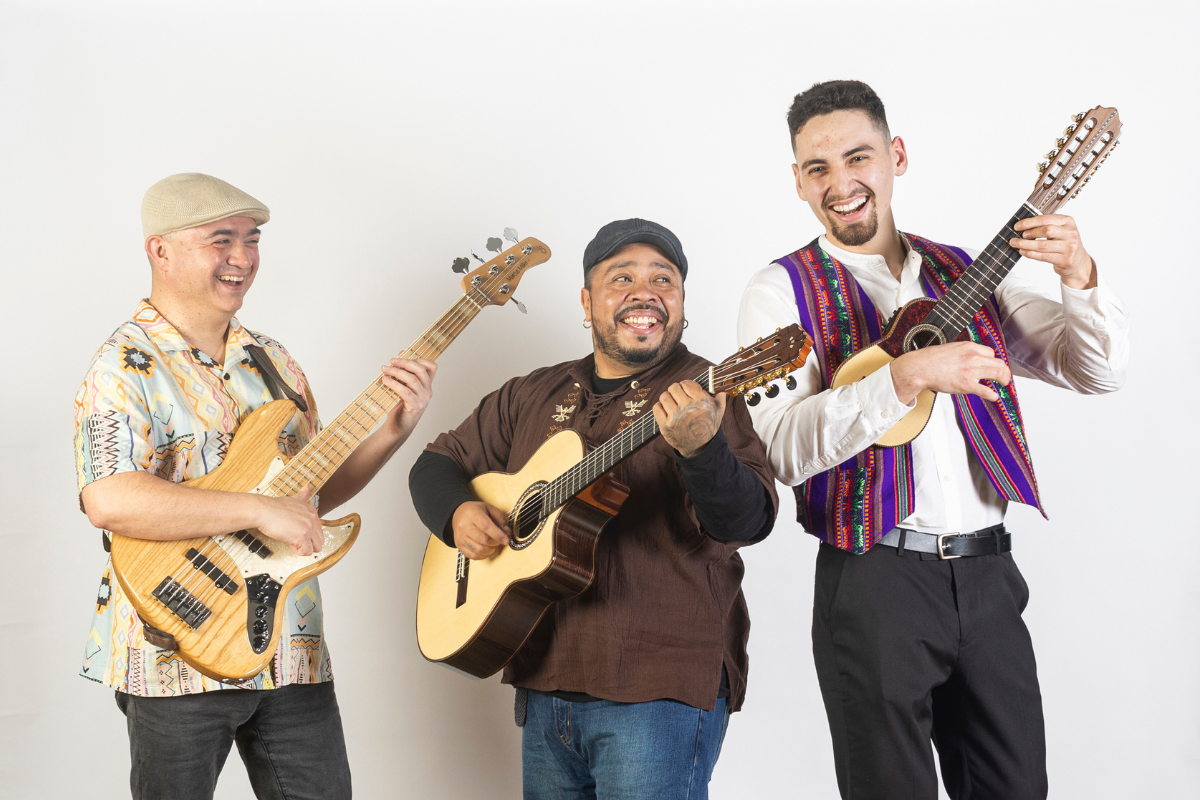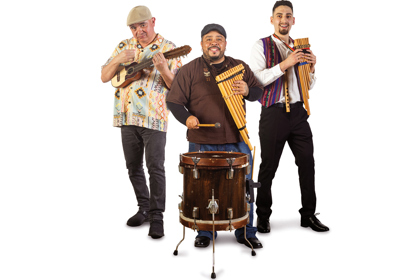César Marin is a musician and member of El Camino, one of Musica Viva Australia In Schools latest shows.
El Camino features César alongside fellow musicians Marco Antonio Carvajal and Eduardo Rodriguez, and their lively show celebrates the music of the performers’ Latin American heritage alongside musical influences from their home in culturally vibrant Western Sydney. Harriet Cunningham talked to César Marin about music, migration and making a home through community.
For all the right and wrong reasons, 11 September 1973 is a day Oscar and Lucy Marin will never forget.
That Tuesday in early Spring was their wedding day – but while they were exchanging their vows their homeland, Chile, was in the grip of a coup d’etat. By that evening, President Salvador Allende was dead and the army, under the command of General Augusto Pinochet, had seized power.
Four years later the Marins, with their infant son in tow, became part of the largest flow of emigration in Chile's history, joining an estimated 200,000 Chileans fleeing the brutal regime. Their destination: Australia.
César doesn’t remember much of this: he was only 3 at the time. But he does remember the importance of music for his family as they made a new life in Australia.
‘Sonido de los Andes commenced in 1977,’ says César. ‘My father, Oscar Marin, was one of the founders. That was only a few months after arriving from Chile. Both my parents used to sing and play guitar; they met through music, so it was a natural evolution for him.
‘The band had a lot of success in those first years. They were the go-to band for that explosion of Latin American culture. Even though it was Andean, initially, it was embraced by all Latin American communities -- Chilean, Bolivian, Peruvian.’
With music as such a central part of their social community, it was almost inevitable that César would join in. He was 11 when he first picked up the charango, a small ten-string guitar found in Peru, Bolivia and Chile, originally made from the shell of an armadillo.
‘It was the first thing I ever played’, says César, ‘and to say it was an obsession doesn’t do it justice. It was beyond that!’
From there he mastered traditional instruments like the quena (South American flute), zampoña (pan flutes), and bombo (South American drum), and Western instruments like the guitar and double bass. He plays many of these in El Camino, his show for Musica Viva Australia In Schools. But the charango has a special place in his heart.



